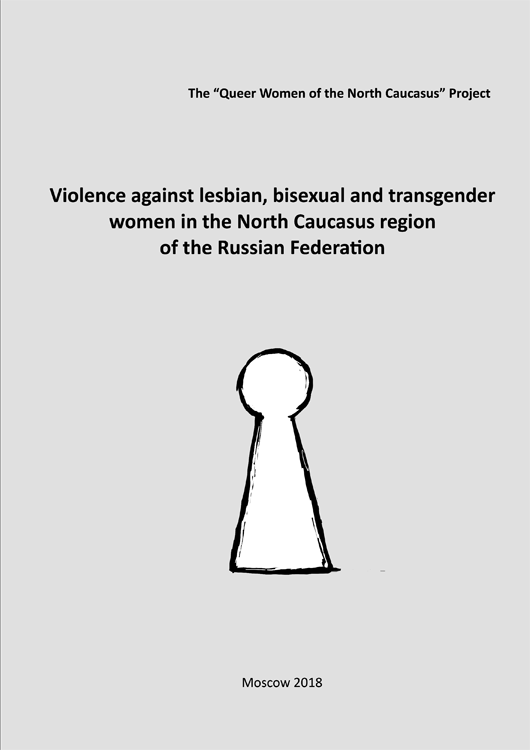Violence Against Lesbian, Bisexual And Transgender Women In The North Caucasus Region Of The Russian Federation

This report on the results of a qualitative study of violence against lesbian, bisexual and transgender women in the North Caucasus region of the Russian Federation is made by the “Queer Women of the North Caucasus” Project with support from the Heinrich Böll Foundation (Moscow).

He pulled out a gun and put me down on my knees. He said: “I’m going to kill you now and nobody will find you. I’ll bury you in the garden”.
From the interview with A.
We urge States to ensure that human rights violations based on sexual orientation or gender identity are investigated and perpetrators held accountable and brought to justice.
UN declaration on sexual orientation and gender identity (article 12)
Human qualities are in their very nature a mixture of good and evil. The rift dividing good from evil, which goes through all human beings, reaches into the lowest depths [of the human soul]...
Viktor Frankl. "Man's Search for Meaning”
Introduction
The relevance of this study became apparent when we started running the “Queer Women of the North Caucasus” project. During the 2017 and 2018 crises in the North Caucasus when reports of massive illegal detentions, torture and extrajudicial killings of LGBT+ people in Chechnya and then in other republics began, most of the applicants were homosexual and bisexual men. Appeals for help by lesbian and bisexual women were relatively rare. The “Queer Women of the North Caucasus” project itself was the result of the joint efforts of individual female activists in Russia and aims to support and protect lesbian, bisexual and transgender women. Over those two years, the activists involved in the project were able to gather a large amount of information confirming facts of violence against lesbian, bisexual and transgender women in the North Caucasus. Any explicit support and assistance to lesbian, bisexual and transgender women in the North Caucasus entails significant risks, primarily for the applicants themselves.
The atmosphere of fear, mistrust, and severe stigmatization, risk to one’s life, blatant limitations on the rights of lesbian, bisexual and transgender women, the absence of existing mechanisms to protect women's rights, the fact that discrimination against women is ignored and discrimination is justified, and explicit lesbo- / homo- / bi-/ transphobia and harassment at the state level are all factors that do not allow lesbian, bisexual and transgender women in the North Caucasus to find protection, let alone report acts of violence and discrimination against them.
In the study we use the term “lesbophobia” to denote uncontrolled negative emotions, any negative attitude (hatred, dislike, aggression) towards women, based on assumptions about their homosexual orientation [1]. In addition, we use feminine forms to increase the visibility of the gender imbalance of violence. This approach provides an intersectional perspective [2] on the problem of violence against lesbian, bisexual and transgender women in the North Caucasus and makes it possible to avoid instances of linguistic sexism.
We sincerely hope that the study will help to draw attention to the extremely vulnerable situation of lesbian, bisexual and transgender women in the North Caucasus and find ways to stop “honour killings” and violence against lesbian, bisexual and transgender women.
[1] Avoiding hate speech towards lesbian, gay, bixexual, and transgender persons. A guide for journalists. Compiled by Valery Sozaev, the Moscow Helsinki Group. – Moscow, 2013, p. 3
[2] Crenshaw, Kimberle. Demarginalizing the Intersection of Race and Sex: A Black Feminist Critique of Antidiscrimination Doctrine, Feminist Theory and Antiracist Politics. University of Chicago Legal Forum 1989: 139–67